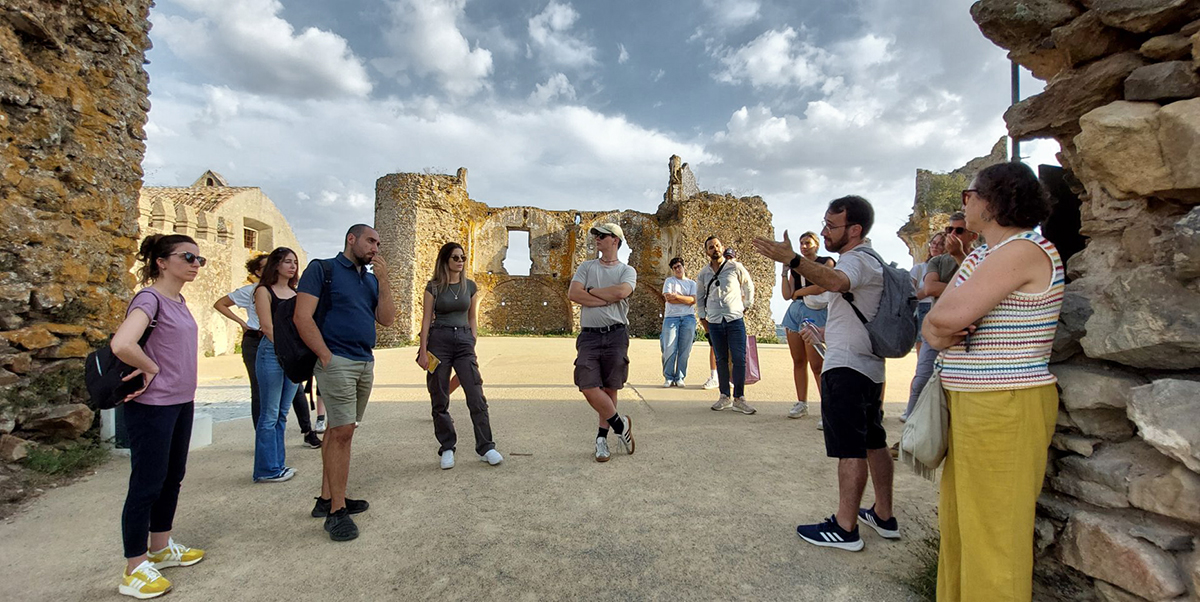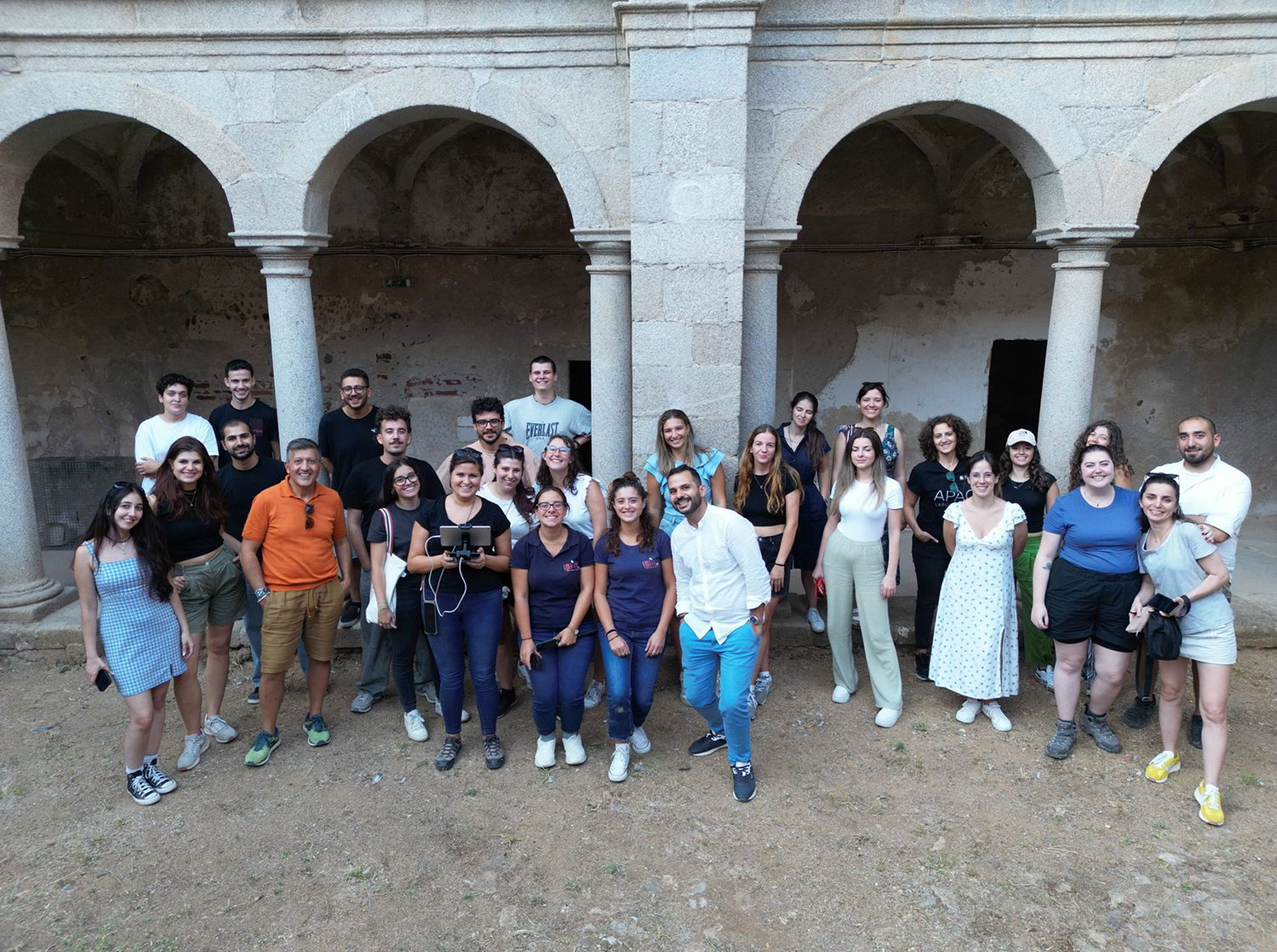APAC Labs participates in the Blended Intensive Programme “Unveiling Medieval Monastic Dynamics”
APAC Labs researchers took part in the Blended Intensive Programme “Unveiling Medieval Monastic Dynamics” (M_Dyn), hosted by NOVA FCSH in partnership with the University of Évora, Università di Pavia, Politecnico di Torino and The Cyprus Institute. The program was fully supported by the Graduate School of the Cyprus Institute with the direct engagement of Senior Education and Training Officer Dr. Maria Constantinou and the School’s Director Dr. Chrysanthia Leontiou.
APAC Labs’ Dr. Nikolas Bakirtzis, Dr. Valentina Vassallo and Dr. Mia Trentin contributed to online sessions designed to offer an introduction to both the context of Portuguese cultural heritage study and the application of digital tools for documentation and analysis of heritage assets with a particular focus on monastic landscapes. Vassallo joined Cyprus Institute doctoral students Nicolette Levy, Mehmetcan Soyluoglu, and Soodabeh Sajadi on-site in Montemor-o-Novo, Portugal for an in-person workshop that involved additional training sessions, field study, and a presentation of initial findings to local stakeholders. CyI student participants are actively pursuing their work in the context of APAC Labs activities and their doctoral topics are related to the program’s theme.
The online component of the BIP included lectures from Bakirtzis, Vassallo and Trentin. Bakirtzis’ presentation provided a comparative view of the monastic landscape of the Troodos mountains in Cyprus with a special focus on the group of ten medieval churches inscribed in UNESCO’s list of World Heritage known as the “Painted Churches of the Troodos Region.” Vassallo’s session informed participants of a standardized framework consisting of semantic tools such as metadata, ontologies, and vocabularies developed at APAC Labs, which forms the basis for the development of data management and risk analysis systems that effectively aid in the management, preservation, conservation and valorization of monastic landscapes. Trentin’s lecture provided a relevant case study synthesizing traditional and new methods of study to cultural heritage sites with her investigation of graffiti in churches across Cyprus, illustrating how to approach the graffiti heritage and optimize their potential as a graphic source that reveals stories and practices from the past.
The on-site part of the program took place between the 15th and the 20th of September 2024. Students and instructors met at the 16th-century convent of Nossa Senhora da Saudação, located in Montemor-o-Novo, in the Alentejo region of southern Portugal for a week of hands-on learning, fieldwork, and preliminary analysis. Joined by professors from partner institutions including NOVA FCSH, University of Évora, Università di Pavia, and Politecnico di Torino, APAC Labs researcher Valentina Vassallo offered guidance to the student working groups, who were tasked with documenting and visualizing data around three aspects of the historic site: the landscape, the built systems, and the water management systems. Each of the CyI students was assigned to a different working group, and they brought their experience working with these technologies and methods in APAC Labs to the new context of a Portuguese monastery. The in-person session concluded with a presentation of each working group’s initial findings and outputs, which were shared with the entire group of students and instructors alongside local stakeholders from the Montemor-o-Novo municipality.
The M_Dyn BIP was generously funded by the Erasmus+ program, and was held with the support of the Oficinas do Convento, who showcased best practices in preserving Portuguese tangible and intangible heritage to the international students, and the international partners CIPA Heritage Documentation, Future for Religious Heritage (FRH), MOEBHIOS_Horizon MSCA, and Marie Skłodowska-Curie Actions.


